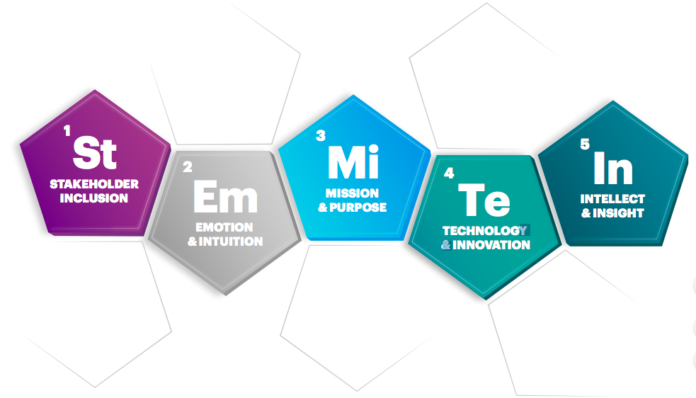The World Economic Forum, working with Accenture, has identified five elements at the heart of a new model of responsible leadership for an era of stakeholder capitalism, one that focuses on strong organisational performance in concert with positive social and environmental impact.
In a new research, the WEF and Accenture suggest that tackling the challenges of the coming decade to accelerate growth and improve societal outcomes will require a wider range of attributes and characteristics from leaders, identifies as the following.
First, stakeholder inclusion. Safeguarding trust and positive impact for all by standing in the shoes of diverse stakeholders when making decisions and fostering an inclusive environment in which diverse individuals have a voice and feel they belong.
Second, emotion and intuition. Unlocking commitment and creativity by being truly human, showing compassion, humility and openness.
Third, mission and purpose. Advancing common goals by inspiring a shared vision of sustainable prosperity for the organisation and its stakeholders.
Fourth, technology and innovation. Creating new organisational and societal value by innovating responsibly with emerging technology.
And fifth, intellect and insight. Finding ever-improved paths to success by embracing continuous learning and knowledge exchange.
“The climate crisis, growing inequality and economic fragility threaten human wellbeing like never before,” said Adrian Monck, managing director for the WEF.
“We need a stakeholder approach in which companies combine entrepreneurialism with purpose, working with others to improve the state of the world in which they operate,” said Monck. “The good news is that the next generations want to develop the broad range of leadership skills needed to make this happen.”
The report is based on surveys of more than 20,000 people — comprising members of the WEF’s Young Global Leaders and Global Shapers communities (“emerging leaders”); CEOs and other business leaders; and employees, consumers and other stakeholder groups.
The report highlights the growing demand for businesses to address environmental, social and economic issues in return for their “license to prosper.”
At the same time, the study notes that profits and responsible leadership needn’t be mutually exclusive. It finds a link between responsible leadership and higher financial performance.
According to the report, the findings suggest that only stakeholder-centric business models can unlock the full power of innovation to elevate organisational performance and drive societal progress.
















